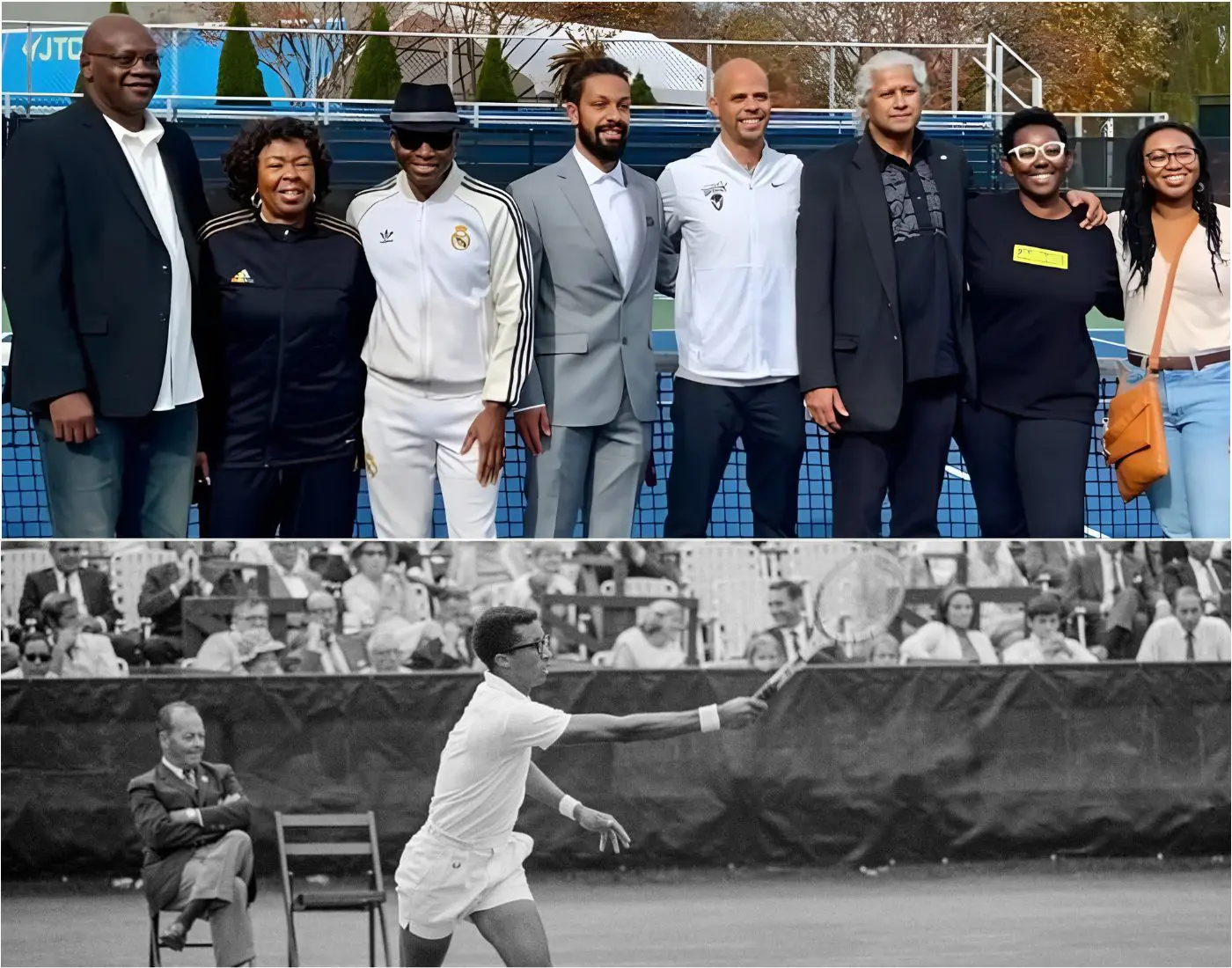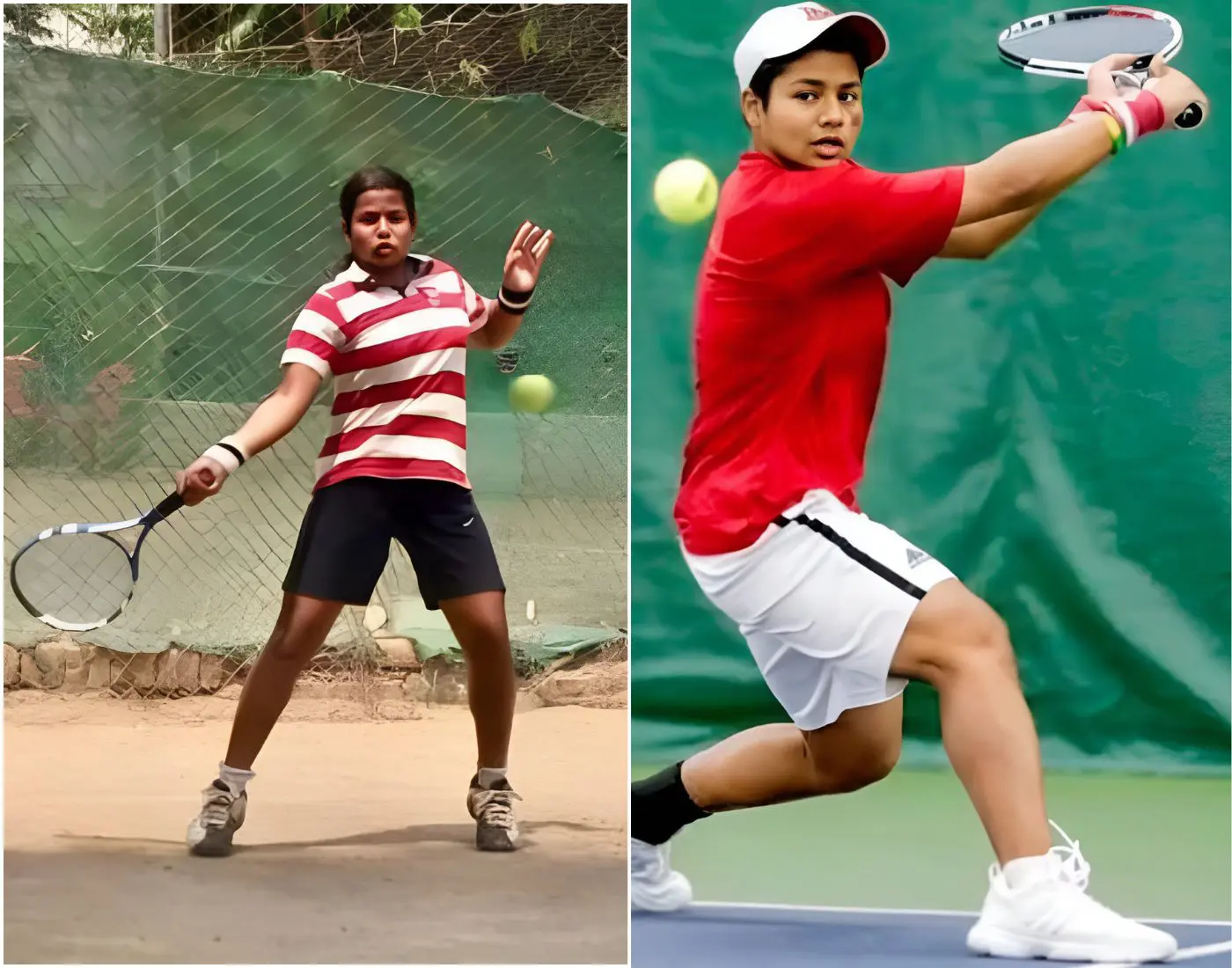More than 100 players, staff, and spectators packed the JTCC lobby on November 17 for the Arthur Ashe Legacy Foundation at UCLA’s panel discussion celebrating the 50th anniversary of Ashe’s first visit to South Africa.
In 1973, Ashe became the first Black professional tennis player to compete in South Africa’s National Championships. Before his arrival, Ashe told the South African government that he would not play in front of a racially segregated audience and would not accept limitations on his free speech while in South Africa.
The 90-minute discussion featured individuals who knew Ashe recalling stories about the tennis pioneer and discussing how today’s young athletes can build on his commitment to empowerment and educational mobility.
Guha Shankar, a Library of Congress representative, moderated the impactful discussion that included a distinguished panel that included South African author Mark Mathabane, 1988 Nigerian Olympic tennis player Dr. Sadiq Abdullahi, American Tennis Association (ATA) President Roxanne Aaron, Director of Swimming, Diving, and Tennis at Howard University Nicholas Askew, and Howard University varsity player and 2021-22 All-Conference Academic team selection Gabriel Knowles.
“The importance of this event was to bring together people who knew Arthur Ashe and experienced the trip to South Africa, but also to connect this history to a new generation of people,” said Yolanda Hester, historian and member of the Arthur Ashe Legacy Foundation. “We want the takeaway for everyone from this event to be to see what you can do to help make a difference and impact the world as Arthur did.”


